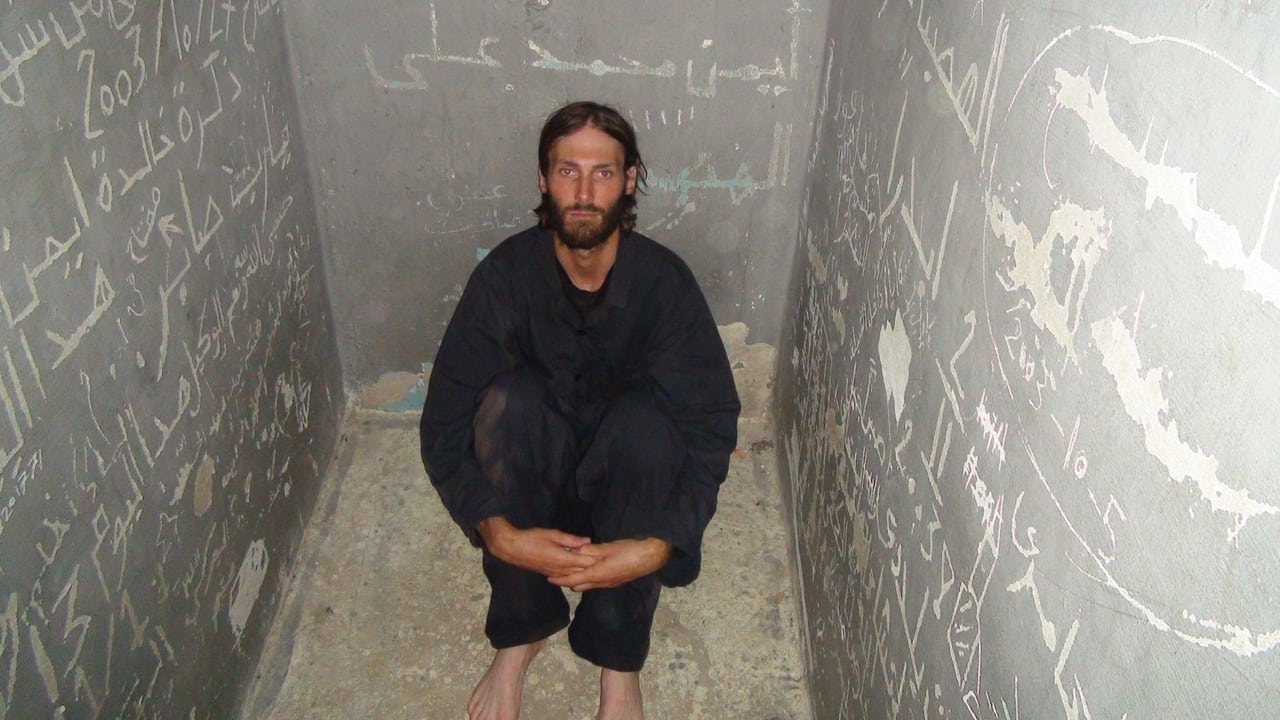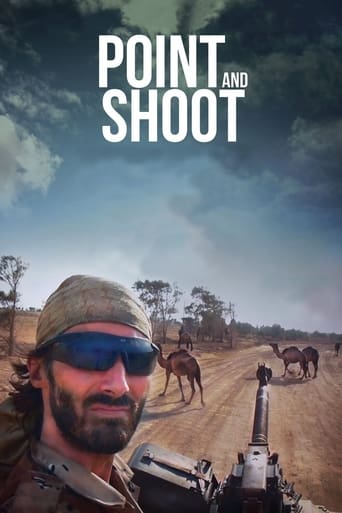



Surprisingly incoherent and boring
Such a frustrating disappointment
It's hard to see any effort in the film. There's no comedy to speak of, no real drama and, worst of all.
View MoreAn old-fashioned movie made with new-fashioned finesse.
View MoreWhat could have been a gripping documentary on the Libyan uprising and overthrow of Gadaffi turns out to be a distinctly uninteresting effort thanks to the focus on the character of Matthew Vandyke, a man who decides to discover himself by driving a motorbike through the Middle East. Vandyke turns out to be a narcissistic nobody who fancies himself as some kind of 'white saviour' figure, leaving the viewer with a bad taste in the mouth throughout.The only genuinely interesting part of the production is the footage shot from the rebel lines in Libya; the rest is exposition and character-building, but you just don't care about the guy. There are lots of long-winded interviews with both Vandyke himself and his girlfriend in the kitchen and they don't add anything to the experience. Instead they detract from it, making this dull in the extreme except when it focuses on the good stuff. It made me long for a Ross Kemp documentary, where the presenter knows well enough to take a back seat to the real story.
View More"Point and Shoot" (2014 release; 83 min.) is a documentary about Matthew Vandyke, a 20-something guy who, having lived a sheltered life (only child of a well to do family), decides to do something about it and goes on a 3 year bike journey across much of Southern Europe and Northern Africa. Along the way he meets and befriends a guy from Libya, and the two develop a strong bond. At the end of 2010, Matt returns home to Baltimore, much to the relief of his girlfriend Lauren, who cannot believe how much Matt has matured (for the better). Then, just 2 months later, the Arab Spring explodes, including in Libya. Matt decides that he cannot stand idle so he returns to Libya to take up the fight alongside his friends against Omar Gaddafi. To tell you more would spoil your viewing experience, you'll just have to see how it all plays out.Couple of comments: first, this is a very heavy Matt Vandyke-centric documentary. As we get to know him, including video clips from his youth, you can't help but wonder how in the world this guy gets along into his mid-20s without doing anything for himself. But at least he seems to realize that himself as well, reason that he decides to take a "crash course in manhood" (fueled by watching lots of TV and playing lots of video games). The first 30 min. of the documentary focuses mostly on that and the subsequent 3 year/35,000 mi. motorcycle journey (at no point is the question raised how he pays for all this). The remainder of the documentary focuses on his stint in Libya alongside the rebels, and makes for much more interesting viewing. If nothing else, it is fascinating to see archive footage of what Libya was like in those days, and the images are far more nuances that whatever footage we saw from US TV news. Second, as conflicted as I am about Vandyke, who seems mostly interested in himself, you can't help but at the same time also give him kudos for doing what he did, going to a war zone to fight alongside his Libyan friends against a brutal dictator. Beware, there are a number of very brutal scenes that may shock some viewers. Finally, there is a nice instrumental score by James Boxter, and for whatever reason the National also decided to contribute several tracks (including Mistaken for Strangers, and Hard to Find)."Point and Shoot" opened without any pre-release buzz or advertising on a single screen for all of Greater Cincinnati this weekend. I figured this will not be playing log, so I went to see it right away, and at the early evening screening where I saw this at, I got a private screening (as in: I was literally the only person in the theater). This isn't the greatest of documentaries, but I'd still suggest you check it out, be it in the theater or eventually on DVD/Blu-day, and draw your own conclusion about "Point and Shoot".
View More"Point and shoot" can describe what you do with a camera in order to capture life. "Point and shoot" can also describe what you do with a weapon in order to take a life. These two concepts collide in filmmaker Marshall Curry's latest documentary, which just happens to be entitled "Point and Shoot".Curry's film consists mostly of footage shot by its subject, one Matt Van Dyke. Mr. Van Dyke is an excellent representative of the current generation and its incessant need to digitally record each and everything about their lives and then foist it upon the public to provide validation for their existence. Van Dyke, a sheltered (some would say spoiled) individual with mental health issues (he admits to Obsessive Compulsive Disorder, but this film leaves you with the feeling there may be a whole lot more at play) decides that he wants to undertake a "crash course in manhood" through North Africa via a motorcycle and, of course, a video camera or two.What might have been a semi-interesting documentary about world travel and the search for meaning in life soon takes a dark turn as Van Dyke ends up fighting on the side of the rebels during the Libyan revolution. Admittedly, there is value in the footage Van Dyke provides that gives us a rare look at a revolution from the inside, but the price we have to pay for that glimpse is more footage of Van Dyke posing and preening for the camera. This culminates in a stomach-churning scene where Van Dyke is pressed to kill a Libyan soldier, which at first he seems reluctant to do, but ultimately accepts – only after making sure his camera is recording it.To have a film produced based on footage you shot of yourself must be a narcissist's wet dream. Van Dyke probably sees the release of this film as validation for all the choices he made and affirmation of his "manhood". At first glance, Curry seems to have provided this validation. Look deeper and you'll see a trenchant commentary on the voyeuristic nature of society today and how the meaning of "manhood" has changed from personal growth that is reached through a series of challenges and encounters to the filming and public exhibition of said transformation for all to see.Matt Van Dyke's camera was clearly pointed at himself. Marshall Curry figuratively takes Van Dyke's camera and turns it back on us. As much as we don't like what we see in Van Dyke, when we think about what we watch today, be it "entertainment" or otherwise, should we feel any better about ourselves?"Point and Shoot" is as frustrating and infuriating a film as I've seen in a long time.
View MoreThis movie contains two different stories, jammed together in a tight 83-minute runtime. The one story, showing remarkable footage of the Libyan civil war, is an unusually privileged window into the Arab Spring.The other story, the story of Matt Van Dyke himself, is a tendentious and even tedious tale of a privileged American thrill-seeker.You can sum up Van Dyke's story in three sentences. A bored 27-year-old, with no job and few friends, decides to go on a motorcycle trip across the Middle East and record his adventures. Eventually he joins his new Libyan motorcycle buddies in their war against Qaddafi, although he doesn't accomplish very much other than getting thrown in prison. After he miraculously survives, Van Dyke takes his footage back to America and begins his new egotistical adventure: trying to become the man he always dreamed of being.The film is a mix of VanDyke's original footage from the Middle East and an interview he did after returning to America. To his credit, he is handsome. But his constant vanity and posing for the camera is tiresome and immature. Van Dyke is especially obsessed with how the media portrays him.And "Point and Shoot" has some serious problems. Although VanDyke's soliloquy is occasionally interrupted by the director, Marshall Curry, his narrative goes unquestioned and unchecked. For example, Van Dyke is thrown into Libyan prison for months, and says that he spent the time regretting how his actions have hurt his loved ones back in Baltimore, who are worrying over him. But as soon as Van Dyke is freed, he ignores everyone's advice to return to America, and instead decides to stay and fight, further troubling his mom and girlfriend.Not having anyone push Van Dyke made this movie less a documentary and more of a vanity project. We were left with many, many questions after seeing the film. Van Dyke didn't have a job, so who paid for his long motorcycle trips overseas? How much time elapsed between different trips? Quick Googling revealed some of the holes in how VanDyke's story is presented, too. The film never mentions this, but Van Dyke annoyed many journalists with his decision to stay in Libya and fight. See the story "VanDyke's deception increases risks for journalists." That seemed like a pretty big news event to gloss over.Having seen "Street Fight," I was excited to watch more of Marshall Curry's work. But while that movie focused on someone trying to make a real difference, activist Cory Booker, this movie only appears interested in making a difference for Matt Van Dyke's fragile ego.
View More